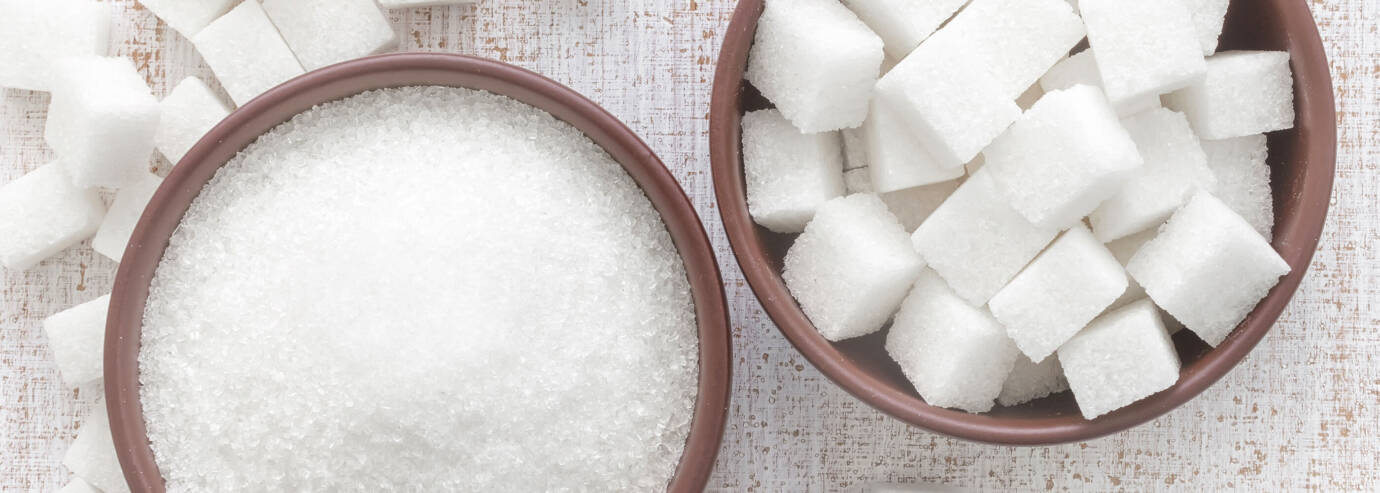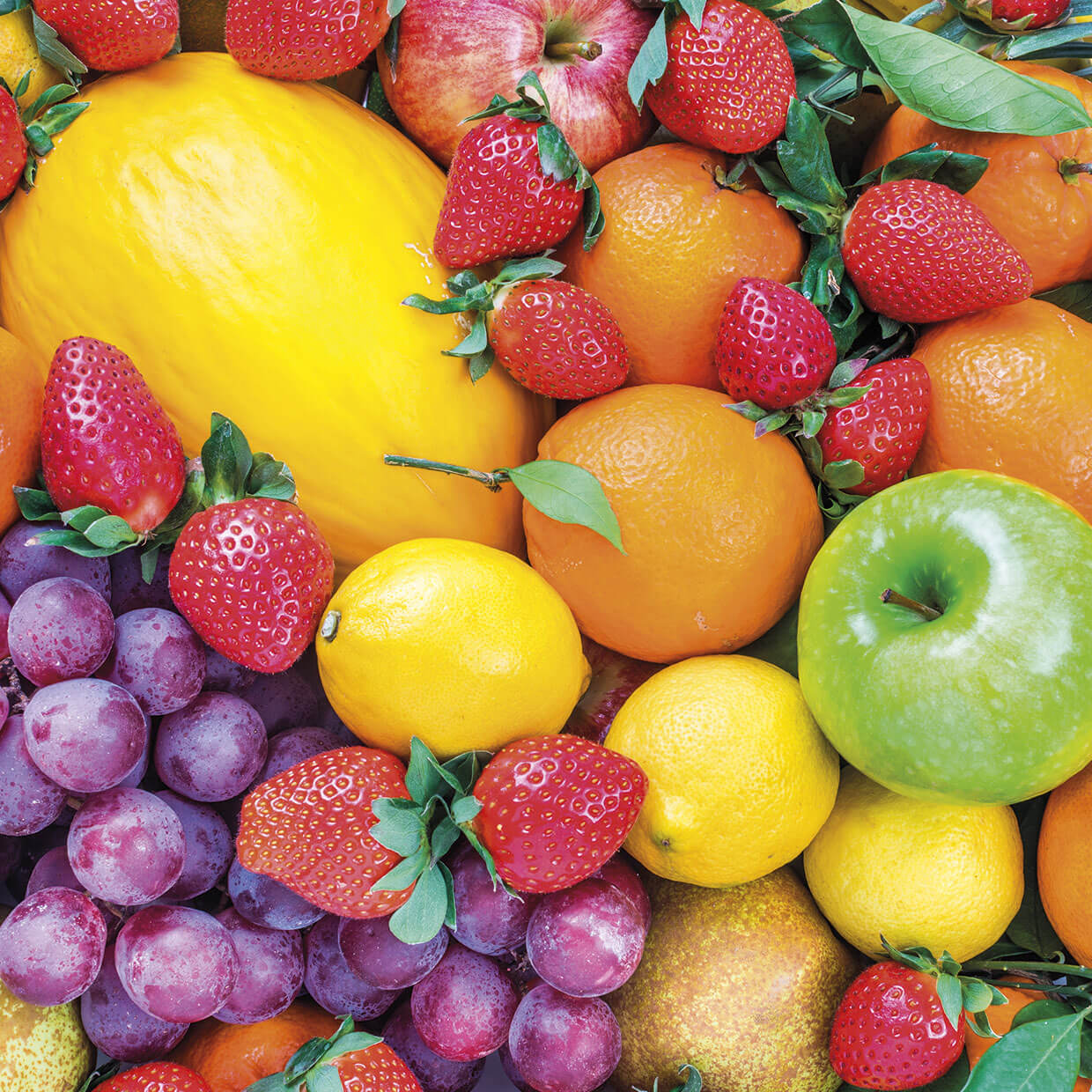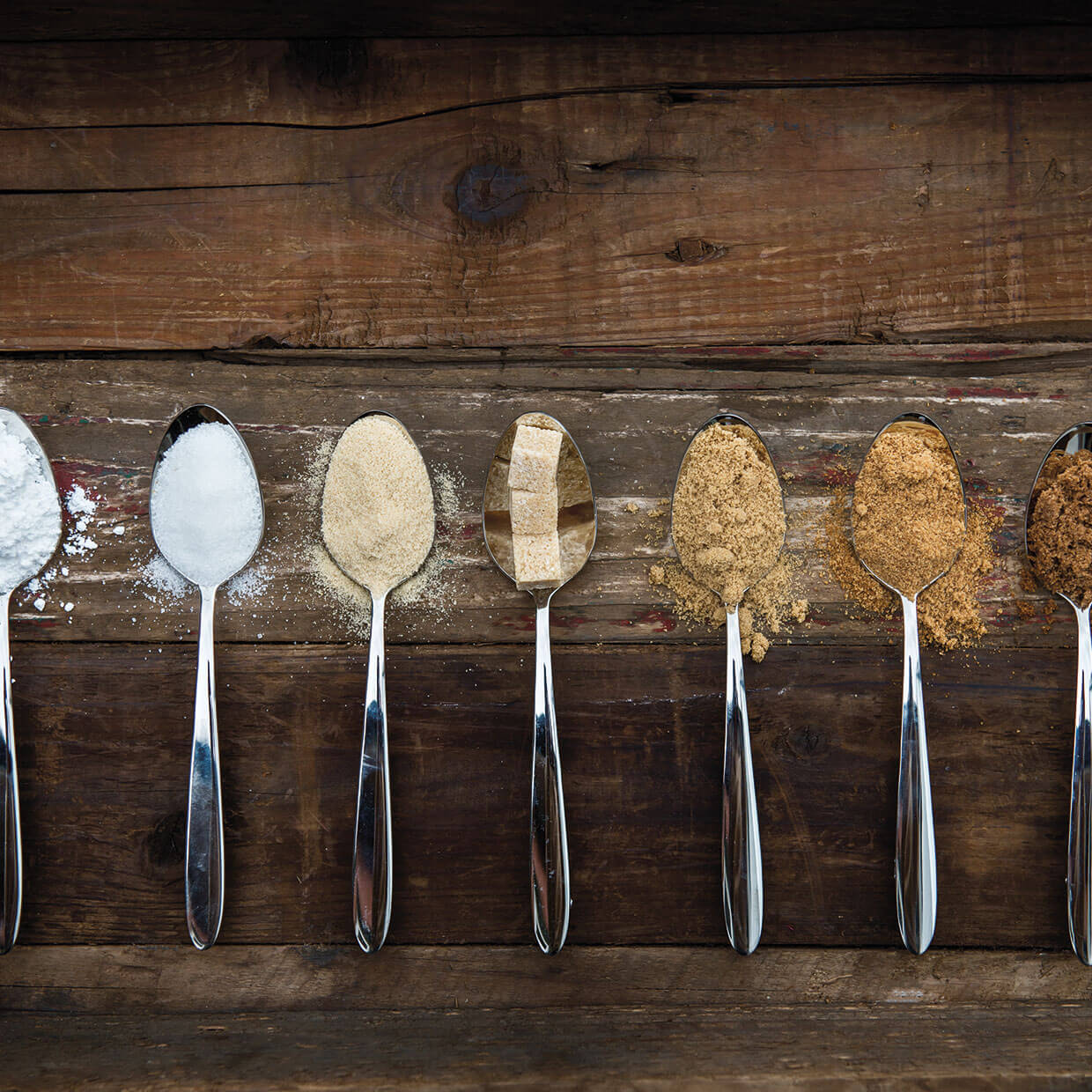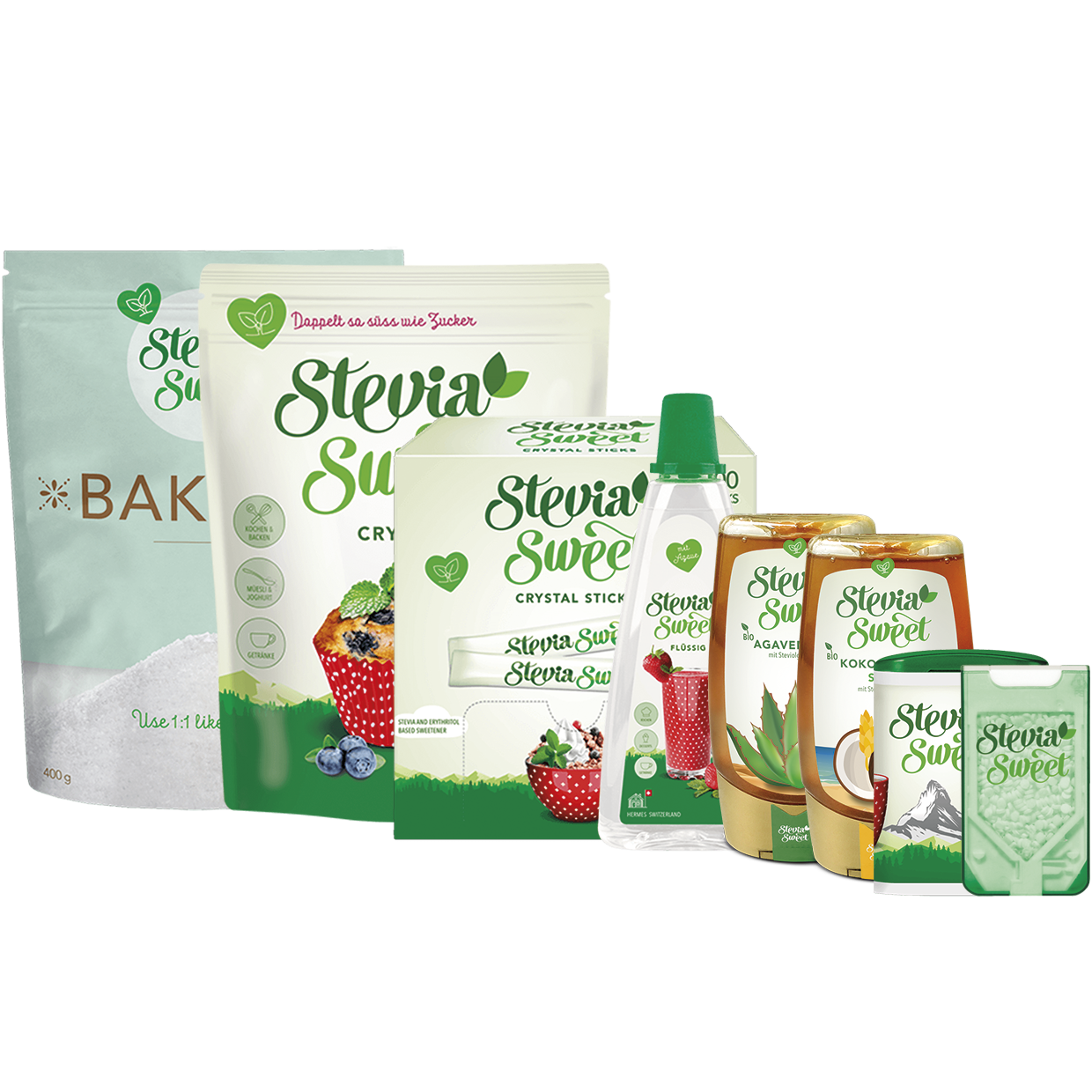Living without sugar
The World Health Organization gives dire warnings. Doctors try to raise awareness among their patients. Even the media are using increasingly drastic imagery. While the World Health Organization recommends 25 g of sugar per day, Germans consume about 90 to 100 g on average. High time to question our sugar intake.
Is it possible to live completely without sugar? Where can we reduce our sugar intake easily? Do delicious recipes also work without sugar? Stefanie Bürge, a nutritionist at Natural Health Coaching helps us find the answers.

What is behind the “white poison”?
In 1972, Dr John Yudkin published his pioneering book “Pure, White and Deadly”, in which he describes the consequences of excessive sugar consumption. At the time of publication, Dr John Yudkin was decades ahead of his colleagues in terms of scientific findings on the subject.
But what exactly is the effect of sugar on our bodies, Stefanie?
Our organs, muscles and cells depend on sugar as fuel. But sugar doesn’t necessarily mean refined sugar: Our bodies can easily draw the energy it needs from starchy products, fruits and some vegetables. Fat and protein are also converted to energy, although this process takes longer.
While we do not need sugar to survive, there is no need to demonise it straight away. Dessert is good for the soul after all. Sugar only threatens our health when we consume it indiscriminately, unconsciously and in large quantities.
Pure sugar, such as the sugar in soft drinks, snacks or sorbet, causes blood sugar levels to rise rapidly. Insulin is then released to lower these levels. Insulin promotes the absorption of sugar into our cells, which is vital for life. Excess sugar is stored in the body. Large amounts of sugar mean large amounts of insulin. A rapid rise in blood sugar is followed by a rapid decrease, which means we then become hungry again.
I frequently talk to people who consume sugar-sweetened beverages between meals, including squash and fruit juice. This behaviour also causes blood sugar levels to rise and insulin to be released. The body constantly absorbs energy, but never depletes (fat) stores. In the long run, such ups and downs in blood sugar levels can lead to excess weight and make us ill.

Is sugar in fruit just as dangerous as refined sugar?
We are often faced with the question of whether sugar in fruit is just as “bad” as sugar.
Stefanie, are an apple and a banana comparable to a piece of chocolate?
That depends on which form they come in. Naturally occurring sugar in fruits is not really a problem – as long as we stick to no more than one piece of fruit per meal, we do not consume it in large quantities. The same cannot be said for fruit juices, however. They contain comparably large amounts of fruit sugar – and incidentally a similar number of calories to soft drinks. We should therefore drink no more than 200 ml of fruit juice per day.
Artificially added fruit sugar is even more dangerous in large quantities than household sugar, as it can promote a fatty liver.
Starting a sugar-free life
It would be better for our bodies if we consistently opted for sugar-free foods. But living entirely without sugar takes a considerable amount of willpower. As sugar is a cheap flavour carrier, the food industry uses it very liberally. The white poison is often hidden behind terms such as malt, isomalt, barley malt, skimmed-milk powder – so it is not easy to evade such treacherous sugar traps.
Stefanie, where should we start?
I recommend abstaining from sugar for two to three weeks to give your taste buds time to get used to less sweetness. Writing down everything we put in our mouths for three to four days helps analyse our eating behaviour. Yes, this also includes sugary sweets and chewing gum. This “diary” often surprises those writing it: What, I eat all of that?


How does the body change without sugar?
We now know why natural sugar is better and that too much sugar is bad for us.
But what other benefits does a sugar-free diet have to offer? And how do our bodies respond to the missing sugar over time?
Positive effects are noticeable within the first few days. Stable blood sugar levels benefit our metabolism, which gives us more energy throughout the day. We also sleep better and have probably already lost weight. After a month, the appearance of our skin improves. The weight loss is even more noticeable now. Our sense of taste becomes more refined. Many of us now find sweetened foods too sweet.
Numerous empirical reports confirm that abstaining from sugar has a positive impact on our health. And another “side effect” to all this: Since sugar causes dental caries, going without sugar also protects our teeth.
Tips for a sugar-free diet
Which foods should I definitely avoid?
I don’t support prohibiting sugar entirely. Instead I would recommend conscious consumption. The only exception is soft drinks, which I find unnecessary as long as you are not malnourished. They contain large amounts of sugar in a small volume and encourage unconscious consumption. And they do not fill us up, since they do not contain any fat or protein.
What should I look out for when shopping?
The less processed the products are, the healthier we eat. Take yoghurt or muesli for example: Why not create your own sugar-free recipes?
It is so easy to make your own fruit yoghurt. Take natural yoghurt. Chop or purée the fruit of your choice and fold it into the yoghurt. If it isn’t sweet enough, you can always add some stevia.
Muesli is also very easy to make at home. Mix oats, raisins, coconut flakes and a nut-and-seed mixture and store in an air-tight container. Or how about some home-made granola?
What can help beat sugar cravings?
The sweetness of fruits. A delicious healthy dessert for example would be fresh or frozen berries (chopped or puréed) with natural Greek yoghurt.
Our recipe database has many delicious sugar-free beverages, meals and desserts for you to explore.
What alternatives are there to sugar?
You cannot imagine your life without sweet desserts? Not to worry, the many natural sugar alternatives mean you don’t have to miss out. SteviaSweet has the right product for every use case. SteviaSweet Crystal and SteviaSweet Baking, for example, are perfect for baking and have many advantages over sugar.
